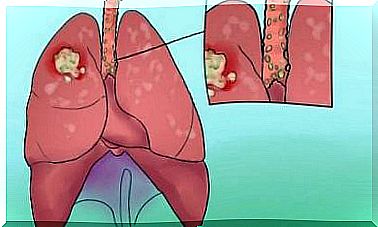How To Make An Anti-inflammatory Diet For The Treatment Of Uric Acid

Uric acid accumulation in the body can trigger a number of inflammatory changes that can affect your quality of life. Adopting an anti-inflammatory diet to treat uric acid is one of the best ways to avoid its effects and stabilize it.
This condition, also called hyperuricemia, is caused by the breakdown of purines found in some foods. Although the body transforms and eliminates them through the work of the kidneys, it sometimes suffers changes because it cannot break them down properly.
As a result, kidney stones can form. This can also lead to arthritis and joint pain. In many cases, they are associated with metabolic problems and arterial hypertension.
How can you implement an anti-inflammatory diet to help fight uric acid?
It is important that you know what is allowed and what is not. Then we look at an anti-inflammatory diet that can help.
An anti-inflammatory diet to treat uric acid: What you need to know
Taking medication is currently the normal treatment for excess uric acid. However, the best way to stabilize blood levels is through your diet.
Why?

The food in our diet can be helpful or harmful when dealing with this problem. While some foods increase the concentration of purines, others will support the metabolic process and remove them from the body.
By following an anti-inflammatory diet you will be able to get the necessary nutrients to deal with this condition. So we suggest avoiding sources of uric acid and prioritizing alkalizing foods.
The purpose of an anti-inflammatory diet
An anti-inflammatory diet used to treat uric acid has three main goals: Regulate the pH of your urine, control your purine consumption, and reduce your fructose intake. These will all help facilitate the breakdown of this substance and therefore reverse its effects.
1. Adjust the pH of urine
The kidneys are the organs responsible for filtering uric acid from the blood to eliminate it through urine. So when it is not controlled, it is important to change the pH of your urine to help with its expulsion.
How?
You can do this by:
- Drink more water and healthy infusions.
- Increase your intake of foods with basic pH values such as vegetables, potatoes and fruits.
- Reduce your intake of uric acid or acidic sources, such as refined sugar, eggs and animal products (meat, fish).
- Limiting your salt intake.
- Avoid complete beverages with alcohol, including beer and wine.
2. Regulate purine intake
In all anti-inflammatory diets, you want your purine intake to be as low as possible. Because of this, it is important to see what you are eating, as well as the cooking method. When food is cooked with purines, much of it goes into the water.
So this is a good way to reduce the purine content of foods, but be careful not to use the water as a broth.
3. Regulate fructose intake
Fructose is converted in the body into a type of purine known as xanthine, which eventually turns into uric acid. So we recommend that you limit your fruit intake to one piece a day. You should also choose fruits with less fructose content.









